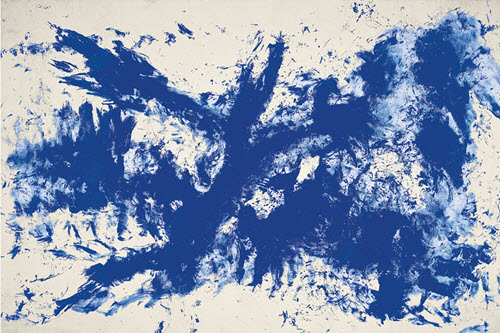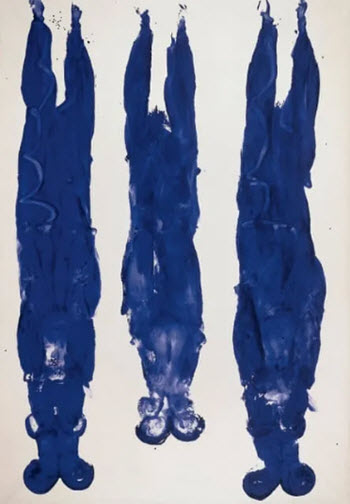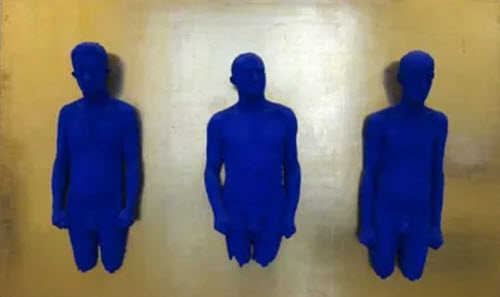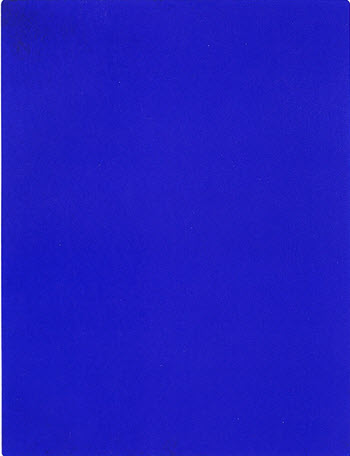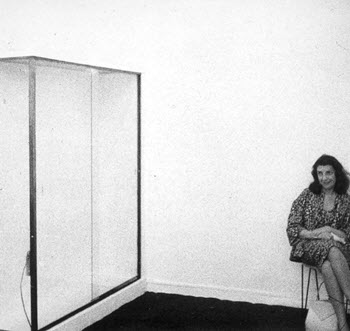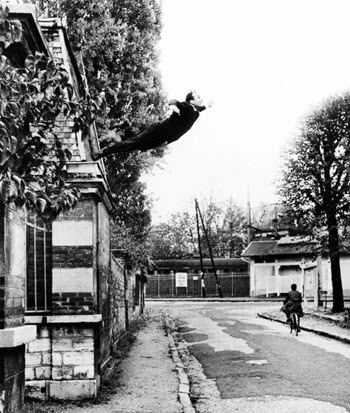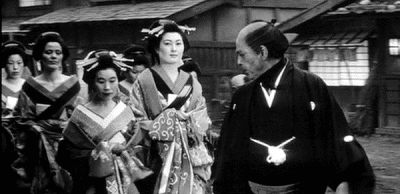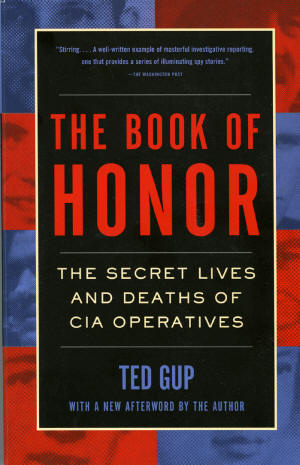https://storage.courtlistener.com/recap ... 9.77.0.pdf
UNITED STATES DISTRICT COURT
SOUTHERN DISTRICT OF NEW YORK
UNITED STATES OF AMERICA,
-against-
JEFFREY EPSTEIN,
Defendant.
19 CR. 490 (RMB)
DECISION & ORDER
Having reviewed, among other things: (i) the Government's motion, dated July 18, 2025, to unseal the grand jury transcripts in United States v. Epstein, and the Government's motion, dated August 8, 2025, to unseal the exhibits related to the transcripts; (ii) the grand jury transcripts, dated June 18, 2019 and July 2, 2019, which together total 70 pages; (iii) the grand jury exhibits (a PowerPoint presentation and 4 pages of call logs); (iv) two letters, dated August 5,2025, from attorneys for Epstein victims and two letters from individual victims; (v) a letter from the Epstein estate executors, dated August 5, 2025; and (vi) the Opinion & Order, dated August 11, 2025, in United States v. Maxwell denying the Government's motion to unseal the Maxwell grand jury transcripts and exhibits, the Court denies the Government's motions to unseal the Epstein grand jury transcripts and exhibits. 1, 2
1 Jeffrey Epstein was indicted on July 2, 2019 on one count of sex trafficking conspiracy and one count of sex trafficking. Epstein never went to trial as he killed himself on August 10, 2019 while remanded in Federal prison. See Gov't Letter Mot., dated Aug. 19,2019 (ECF No. 47).
United States v. Maxwell is very much the companion case to United States v. Epstein. Defendant Ghislaine Maxwell went to trial, and on December 29, 2021 she was found guilty of (1) conspiracy to entice minors to travel to engage in illegal sex acts, (2) conspiracy to transport minors to participate in illegal sex acts, (3) transporting a minor to participate in illegal sex acts, (4) sex trafficking conspiracy, and (5) sex trafficking of a minor.
2 The Government filed similar if not identical motions in Epstein and in Maxwell on July 18, 2025 seeking to unseal the Epstein and Maxwell grand jury materials. Judge Paul A. Engelmayer ruled on August 11, 2025 against unsealing in a very thorough and persuasive Opinion & Order. See United States v. Maxwell, 20 Cr. 330 (PAE), 2025 WL 2301281, at *1 (S.D.N.Y. Aug. 11, 2025).
The principal ruling in this case is that Federal Rule of Criminal Procedure 6( e) governs and that there is clear precedent and sound purpose for grand jury sealing.3 The Government concedes that no Rule 6(e)(3) "exceptions" to grandjury secrecy apply in this case. At the same time, the Government fails to demonstrate any "special circumstance[l" which might justify unsealing. See In re Pet. of Craig, 131 F.3d 99, 102 (2d Cir. 1997) ("There is a tradition in the United States, a tradition that is 'older than our Nation itself,' that proceedings before a grand jury shall generally remain secret.") (quoting In re Biaggi, 478 F.2d 489, 491 (2d Cir. 1973) (Friendly, C.J.)); Douglas Oil Co. of Cal. v. Petrol Stops Nw., 441 U.S. 211, 218 n.9 (1979); United States v. Maxwell, 20 Cr. 330 (PAE), 2025 WL 2301281, at *9 (S.D.N.Y. Aug. 11,2025). "The Government's invocation of special circumstances ... fails at the threshold." Maxwell, 2025 WL 2301281, at *9.
I. BACKGROUND
Jeffrey Epstein was first investigated for sex crimes involving minor girls in 2005 by the Palm Beach, Florida police department. See Decision & Order Remanding Def., dated July 18, 2019, at 3 (ECF No. 32). The investigation also involved the U.S. Attorney's Office for the Southern District of Florida. See id. In the Fall of 2007, Epstein entered into a non-prosecution agreement with the Southern District of Florida based upon Epstein's abuse of minor girls. See id. And, in June 2008, Epstein pled guilty in Florida state court to "one count of procuring a person under the age of 18 for prostitution, a felony, and one count of solicitation of prostitution," also a felony. Id Epstein was sentenced to 18 months in prison although he served (only) 13 months in a work-release program. See id Epstein was also required to register as a sex offender. See id.
3 This ruling also finds that some information contained in the Epstein grand jury materials is in the public sphere. See pages 11-12, infra; Maxwell, 2025 WL 2301281, at *15. The ruling also finds that the Government has not established any "special circumstance[]." See also Maxwell, 2025 WL 2301281, at *21.
On July 2, 2019, Epstein was indicted in the Southern District of New York on one count of sex trafficking conspiracy and one count of sex trafficking. See Indictment, dated July 2, 2019, at 1,11 (ECF No.2). Epstein was arrested on July 8, 2019. On July 18,2019, this Court remanded Epstein, finding that he "pose[d] a threat to additional young girls if he [were] released." Decision & Order Remanding Def. at 11, 33. The Court also found that "Epstein or his representatives hard] intimidated, threatened, and/or made payments to potential witnesses[,]" and that "Epstein [w]as not always ... compliant with his legal obligations as a registered sex offender." Id at 15, 18.
While awaiting trial, Epstein was found dead in his cell at the Metropolitan Correctional Center on August 10, 2019. Soon thereafter, the Government requested that the Court enter an order of nolle prosequi. See Gov't Letter Mot., dated Aug. 19, 2019 (ECF No. 47); see also Hr' g Tr., dated Aug. 27, 2019, at 28:15-17 (ECF No. 53) (Prosecutor: "[T]he government is legally obligated to seek dismissal of the pending indictment against Jeffrey Epstein, and we respectfully submit ... that the entry of the proposed order is similarly required by law."). At the August 27, 2019 hearing, the Court also heard from no less than 23 Epstein victims.4 See id at 51 :14-17 (Attorney David Boies: "[H]ow proud I am of all of these women who have come forward. It's taken an enormous amount of strength and courage for them to do so."); id. at 59:5-10 (Annie Farmer: "I think this is a really important signal to send a message to victims out there that people will take you seriously, people will follow through, and ... that even those in power will be held accountable.").
4 The Court had issued the following Order: "The Court will conduct a brief hearing on Tuesday, August 27,2019 at 10:30 a.m. in connection with the nolle prosequi order proposed to the Court on August 19, 2019 by the United States Attorney. The Court believes that where, as here, a defendant has died before any judgment has been entered against him, the public may [participate 1 in the process by which the prosecutor seeks dismissal of an indictment. At the hearing, Counsel for the Government and for the deceased Defendant, Jeffrey Epstein, will be heard. Counsel for the victims and the victims will also be heard, if they wish to be." Order, dated Aug. 21, 2019 (ECF No. 48).
II. LEGAL STANDARD
The rule of grand jury secrecy (Federal Rule of Criminal Procedure 6()) reflects the "important ways in which it is said to contribute to the success of grand juries and to the protection of those who appear before them." In re Craig, 131 F.3d at 101-02. Rule 6(e) requires that grand jury activities be secret for the following reasons:
1. To prevent the escape of those whose indictment may be contemplated;
2. To insure the utmost freedom to the grand jury in its deliberations, and to prevent persons subject to indictment or their friends from importuning the grand jurors;
3. To prevent subornation of perjury or tampering with the witnesses who may testify before grand jury and later appear at the trial of those indicted by it;
4. To encourage free and untrammeled disclosures by persons who have information with respect to the commission of crimes; and
5. To protect innocent accused who is exonerated from disclosure of the fact that he has been under investigation, and from the expense of standing trial where there was no probability of guilt.
There are several (limited) exceptions to grand jury secrecy under Rule 6(e)(3) which resolve almost all applications for the unsealing of grand jury records. See Fed. R. Crim. P. 6(e)(3)(E)(i)-(v); In re Craig, 131 F.3d at 102. The Second and the Seventh Circuit Court of Appeals also review "'special circumstances' in which release of grand jury records is appropriate even outside of the boundaries of the rule." In re Craig, 131 F.3d at 102 (quoting In re Biaggi, 478 F.2d 4899, 494 (2d Cir. 1973) (Friendly, C.J.)); see Carlson v. United States, 837 F.3d 753,756 (7th Cir. 2016).5
District courts in the Second Circuit determine whether exceptions to grand jury secrecy apply and when disclosure of records may lie appropriate. See In re Craig, 131 F.3d at 102. Disclosure of grand jury materials outside of the exceptions under Rule 6( e) involve "special conditions" which "rest[] on the exercise of a sound discretion" of the trial court. Id. at 103; Pittsburgh Plate Glass Co. v. United States, 360 U.S. 395, 399 (1959).
In analyzing "special condition[]" exceptions, district courts consider the following nine (9) so-called In re Craig factors:
1. The identity of the party seeking disclosure;
2. Whether the defendant to the grand jury proceeding or the government opposes the disclosure;
3. Why disclosure is being sought in the particular case;
4. What specific information is being sought for disclosure;
5. How long ago the grand jury proceedings took place;
6. The current status of the principals of the grand jury proceedings and that of their families;
7. The extent to which the desired material -- either permissibly or impermissibly -- has been previously made public;
8. Whether witnesses to the grand jury proceedings who might be affected by disclosure are still alive; and
9. The additional need for maintaining secrecy in the particular case in question.
Laws. 'Comm. for 9/11 Inquiry, Inc., 43 F.4th at 285 (quoting In re Craig, 131 F.3d at 106).
The party seeking to unseal grand jury materials must demonstrate that unsealing is appropriate. See id. ("The burden is on the requester to demonstrate that disclosure is appropriate, and 'the baseline presumption [is] against disclosure. "') (quoting In re Craig, 131 F.3d at 104).
5 The Sixth, Eighth, Eleventh, and D.C. Circuits do not include any exceptions outside the terms of Rule 6(e). See McKeever v. Barr, 920 F.3d 842, 850 (D.C. Cir. 2019), cert. denied, 140 S. Ct. 597.
III. DISCUSSION
The Government concedes that it cannot meet any of the exceptions specified in Rule 6( e). Rather, the Government contends that unsealing is warranted under a particular "special condition[]," namely a public interest exception. See Gov't Mot. at 4; but see Maxwell, 2025 WL 2301281, at *11 ("Contrary to the Government's depiction, the ... grand jury testimony is not a matter of significant historical or public interest. Far from it."). There is certainly and appropriately lots of discussion about the Epstein case and for that reason the Court is proceeding to evaluate the validity of the Government's special condition claim under the nine In re Craig factors.
Factor 1. The Identity of the Party Seeking Disclosure
The Government is the party seeking disclosure-however unusual it is for the Government to seek to unseal grand jury material. See In re Biaggi, 478 F.2d at 491. Not since In re Biaggi (1973) has the Government sought to unseal grand jury materials based upon "special circumstances." Gov't Mem. at 3-4 (acknowledging the "extraordinary nature" of the Government's unsealing request). The Government's argument for unsealing "is not dispositive," and it "should ... not be taken as demanding, or even authorizing[] public disclosure of a witness' grand jury testimony." In re Craig, 131 F.3d at 106; In re Biaggi, 478 F.2d at 494.
A significant and compelling reason to reject the Government's position in this litigation is that the Government has already undertaken a comprehensive investigation into the Epstein case and, not surprisingly, has assembled a "trove" of Epstein documents, interviews, and exhibits. And, the Government committed that it would share its Epstein investigation materials with the public. See Press Release, Dep't of Just., Attorney General Pamela Bondi Releases First Phase of Declassified Epstein Files (Feb. 27, 2025) ("DOJ Press Release"), https://www.justice.gov/opa/pr/attorney ... d-epstein- files ("The Department remains committed to transparency and intends to release the remaining [Epstein] documents.") (emphasis added). The Government's 100,000 pages of Epstein files and materials dwarfthe 70 odd pages of Epstein grand jury materials. See Adam Goldman & Alan Feuer, How a Frantic Scouring of the Epstein Files Consumed the Justice Dept., NY Times (July 24, 2025), https://www.nytimes.com/2025107/24/us/p ... les-trump- bondi-justice-department-fbi.html. The Government's "Epstein Files" are sui generis. They are investigatory and not subject to Federal Rule of Criminal Procedure 6(e).
The Government is the logical party to make comprehensive disclosure to the public of the Epstein Files.6 By comparison, the instant grand jury motion appears to be a "diversion" from the breadth and scope of the Epstein files in the Government's possession. Maxwell,2025 WL 2301281, at * 11. The grand jury testimony is merely a hearsay snippet of Jeffrey Epstein's alleged conduct.
In February 2025, the Government, as noted, was prepared to release their "Epstein Files" to the public. See DOJ Press Release. But then, on July 6, 2025, the Government announced it would not make the files available to the public. See DOJ & FBI Memo. at 1 ("[ I]t is the determination of the Department of Justice and the Federal Bureau of Investigation that no further disclosure would be appropriate or warranted.").
6 The House Committee on Oversight and Government Reform Chairman James Comer (R-Ky.) has recently stated that the U.S. Department of Justice informed the Committee it will begin providing Epstein-related records "this week." Press Release, House Committee on Oversight and Government Reform (Aug. 18, 2025), https://oversight.house.gov/release/cha ... h-epstein- records-subpoena/.
There is another compelling reason not to unseal the Epstein grand jury materials at this time, namely possible threats to victims' safety and privacy. The Court received a very compelling letter, dated August 5, 2025, from three leading victims' rights attorneys, who have stated: "[A ]ny disclosure of grand jury material-especially material that could expose or help identify victims in any way--directly affects the CVRA's [18 U.S.C. § 3771] fairness, privacy, conferral, and protection guarantees." Edwards et al. Letter, dated Aug. 5,2025, at 2 (ECF No. 73). These attorneys represent "numerous survivors of Jeffrey Epstein, including several individuals whose names and identifying information appear in the subject materials." Id. at l. Whether victims do or do not favor unsealing, it is imperative that victims have adequate notice of unsealing and adequate time to respond in advance of disclosure. See id. at 2.
Victims did not have sufficient notice before the Government filed the instant motions to unseal. See id. The Government must ensure a proper review and redaction process in coordination with victims' counsel. Id. It is critical that victims be afforded "narrow tailoring, maximal privacy protections, and meaningful victim participation" in accordance with the Crime Victims' Rights Act. Id. at 4; 18 U.S.C. § 3771. And, best practices require advance approval of redactions by an objective party. See Edwards et al. Letter at 3.
The following comments were included in letters recently received by the Court: (i) Letter from Boies Schiller on behalf of Annie Farmer, dated August 5, 2025: "The grand jury transcripts should be released subject to narrowly tailored redactions of the names, likenesses, and identifying information of the victims"; (ii) Letter from Bradley Edwards, Brittany Henderson, and Prof. Paul G. Cassell, dated August 5, 2025: "[T]ransparency cannot come at the expense of the very people whom the justice system is sworn to protect-particularly amid contemporaneous events that magnify risk and trauma"; (iii) Letter of Jane Doe 1, dated August 4, 2025: "It is imperative with the scrutiny over this media frenzy that the victims are completely and entirely protected"; and (iv) Letter of Jane Doe 2, dated August 4,2025: "I beg the court to make sure it is the upmost priority that in any sort of release ALL and EVERY detail that could possibly reveal our identities be redacted."
Factor 1 favors continued sealing.
Factor 2. Whether the Defendant to the Grand Jury Proceeding or the Government Opposes the Disclosure
Jeffrey Epstein is dead. And, the Government supports unsealing. The Co-Executors of Epstein's Estate "take[] no position regarding the Government's motion to unseal." Co- Executors' Letter, dated Aug. 5,2025, at 1 (ECF No. 71).
There are important considerations - particularly safeguarding victims' rights - which counsel against the Government's unsealing motion. See victims' rights discussion at pages 8-9, supra; see also In re Biaggi, 478 F.2d at 494 (unsealing "rests on the exercise of a sound discretion under the special circumstances of [ each] case").
Factor 2 favors continued sealing.
Factor 3. Why Disclosure Is Being Sought in the Particular Case
Another question surrounding the Government's motion to unseal is what constitutes the "public interest." Gov't Mot. at 4. It is clear that grand jury materials may not be unsealed based upon "a blanket assertion that the public has an interest in the information contained in the grand jury [materials]." In re Craig, 131 F.3d at 105.
The Government contends that "public interest" came to the forefront on July 6, 2025 when the Department of Justice and the Federal Bureau of Investigation "announced the conclusion of their review of the particulars of Epstein's crimes and death." Gov't Mot. at 2. Since then, according to the Government, "the public's interest in the Epstein matter has remained." Id. The Government's assertions are legally insufficient. See In re Craig, 131 F.3d at 105 ("[T]he district court's comment that public interest, without more, cannot permit disclosure must be read simply as the commonplace observation that the 'special circumstances' test cannot be satisfied by a blanket assertion that the public has a[] [generic] interest in the information contained in the grand jury transcripts.").
Factor 3 favors continued sealing.
Factor 4. What Specific Information Is Being Sought for Disclosure
The Government does not attempt to tailor discrete (specific) items within the record. Id. at 106; Maxwell, 2025 WL 2301281, at *13. Nor does the Government seek leave to disseminate grand jury materials to a specialized audience (with appropriate safeguards). In re Craig, 131 F.3d at 106; Maxwell, 2025 WL 2301281, at *13.
Not a single victim was called to testify before the Epstein grand jury. In fact, the only witness in the grand jury was a law enforcement FBI agent who had no direct knowledge of the facts of the case and whose testimony was mostly hearsay. The grand jury materials in question include the following:
a. A 56-page transcript of the agent's presentation to the grand jury on June 18, 2019;
b. A 14-page transcript of the agent's presentation to the grand jury on July 2, 2019;
c. A PowerPoint exhibit shown to the grand jury on June 18, 2019; and
d. A call log exhibit shown to the grand jury on July 2, 2019.
Factor 4 favors continued sealing.
Factor 5. How Long Ago the Grand Jury Proceedings Took Place
The Epstein grand jury convened on June 18, 2019 and July 2, 2019. Epstein died a little more than six years ago. The Government has suggested that "public interest" in the Epstein matter peaked as recently as July 6, 2025. See page 7, supra.
The Second Circuit has found that the "public interest" often spans several decades, i.e. before any unsealing of grand jury materials. See In re Craig, 131 F.3d at 105. Indeed, courts have granted unsealing motions where grand jury proceedings took place as long as decades ago. See In re Pet. of Nat'! Sec. Archive, 104 F. Supp. 3d 62S, 626 (S.D.N.Y. 201S); In re Pet. of Am. Hist. Ass'n, 49 F. Supp. 2d 274, 277-78 (S.D.N.Y. 1999).
Factor 5 favors continued sealing.
Factor 6. The Current Status of the Principals of the Grand Jury Proceedings and That of Their Families
Jeffrey Epstein is dead and representatives of Epstein's estate have "take[n] no position regarding the Government's motion to unseal." Co-Executors' Letter at 1.
Factor 6 is neutral.
Factor 7. The Extent to Which the Desired Material -- Either Permissibly or Impermissibly -- Has Been previously Made Public
"[D]esired material" refers to a relatively modest amount (70 pages plus exhibits) of Epstein grand jury information which is secret under Rule 6(e). The material was sufficient to obtain the indictment of Jeffrey Epstein, but not more. Because Epstein died before trial, the material was never presented to a trial jury and was never subjected to examination and cross examination. It was the hearsay testimony of one FBI agent.
The Government has estimated that some Epstein grand jury information became public via the Maxwell criminal trial (and also through civil cases related to Epstein and Maxwell). Gov't Letter, dated Aug. 8, 202S, at (ECF No. 7S) (in making its assessment, "the Government ... compared the [Epstein] grand jury exhibits against the trial record and exhibits in the Maxwell trial, as well as against any publicly filed civil complaints"). Because the Epstein case never went to trial, most of the Epstein grand jury material did not become public. See Laws. ' Comm. for 9/11 Inquiry, Inc., 43 F.4th at 286 (denying a motion to unseal, in part, because some of the materials requested by the applicant were not public).
Desired material refers also to the Government's substantial investigative trove concerning the Epstein case (and presumably the Maxwell case as well). The Government has, so far, withheld these materials from the public. Very recently, the Government announced that it was going to make these materials public -- presumably piecemeal -- in response to a congressional subpoena. See Michael Gold, Top Republican Says Justice Dept. Will Begin Sharing Epstein Files, NY Times (Aug. 18, 2025), https://www.nytimes.comJ2025/08/l8/ us/politics/epstein-files-release-trump.html. The Government's complete information trove would better inform the public about the Epstein case. See pages 6-7, supra.
Factor 7 favors continued sealing.
Factor 8. Whether Witnesses to the Grand Jury Proceedings Who Might be Affected by Disclosure Are Still Alive
The only witness who presented before the Epstein grand jury was the FBI law enforcement agent who is still alive. Because Epstein died before his trial, the Government moved the Court for an order of dismissal of Epstein's case (nolle prosequi). See Gov't Letter Mot., dated Aug. 19,2019 (ECF No. 47); see also Hr'g Tr. at 28:15-17; see also pages 3-4, supra.
The same agent testified in the Ghislaine Maxwell grand jury (and in the Maxwell trial).7 Maxwell was found guilty of (1) conspiracy to entice minors to travel to engage in illegal sex acts, (2) conspiracy to transport minors to participate in illegal sex acts, (3) transporting a minor to participate in illegal sex acts, (4) sex trafficking conspiracy, and (5) sex trafficking of a minor.
7 There was a second witness in the Maxwell grand jury, i.e. a New York Police Department detective.
Maxwell's convictions were affirmed by the Second Circuit.8 The Maxwell case is pending before the U.S. Supreme Court. See United States v. Maxwell, No. 24-1073 (S. Ct. Apr. 10, 2025).
Victims were not called to testify in the Epstein grand jury. Victims did have the opportunity to speak in public at the August 27, 2019 nolle prosequi hearing. See pages 3-4, supra. And, as noted, 23 victims spoke movingly about their horrific Epstein experiences at the hearing.
According to the Government, there are over a thousand victims of Jeffrey Epstein. See DOJ & FBI Memo. at 1 (The Government "confirmed that Epstein harmed over one thousand victims. "). It is difficult to know exactly how many victims favor unsealing and how many favor continued sealing. It is likely that victims who favor disclosure do so on the assumption that their safety, privacy, and dignity will be protected. See id.; Edwards et al. Letter at 4 ("[T]ransparency cannot come at the expense of the very people whom the justice system is sworn to protect-particularly amid contemporaneous events that magnify risk and trauma.").
Factor 8 favors continued sealing.
Factor 9. The Additional Need for Maintaining Secrecy in the Particular Case in Question
The Epstein grand jury materials are subject to the provisio5, supra. And, in the Second Circuit, unsealing applications are subject to "special circumstances" jurisprudence. See, e.g., In re Craig, 131 F.3d at 102.
8 Judge Alison J. Nathan who presided over the Maxwell trial found that the three conspiracy counts against Maxwell were multiplicitous. Judge Nathan entered a judgment on only one of the three conspiracy counts. See Maxwell Judgment, dated June 29, 2022, at 1 (ECF No. 696).
The information contained in the Epstein grand jury transcripts pales in comparison to the Epstein investigation information and materials in the hands of the Department of Justice. See discussion at pages 8-9, supra (concerning victims' rights and the importance of protecting victims' safety, privacy, and dignity).
Factor 9 favors continued sealing.
IV. CONCLUSION
For the reasons stated above, including the In re Craig analysis and based upon the record, the Government's motions to unseal the grand jury transcripts and exhibits in United States v. Epstein [ECF # 61 & 75] are respectfully denied.
Date: August 20, 2025
New York, New York
RICHARD M. BERMAN, U.S.D.J.

